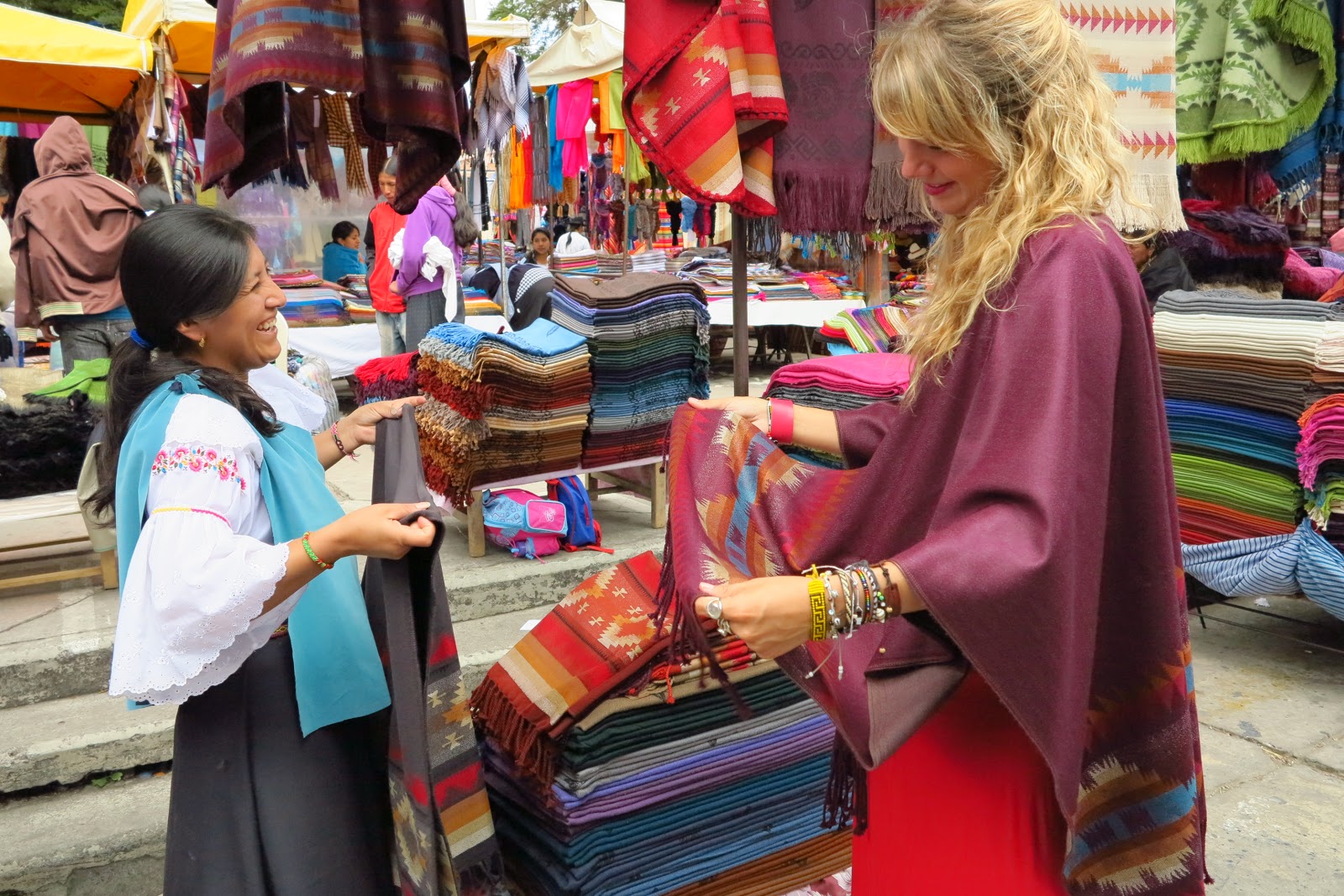
Shopping in Otavalo, Ecuador. Yes, I bought that poncho. Fun fact: if you see this photo anywhere else online, they’ve stolen it from my blog (it’s everywhere, much to my chagrin). Apparently I am the only person who has ever taken a photo in Otavalo?!
Last month, I wrote a post on why you should buy souvenirs, and why you’re not any less of a traveller if you do so. Trust me – I buy a LOT of souvenirs when I travel. Baskets, art, jewellery, clothing, tapestries, spices, books, tchotchkes (I spelled that correctly on the first try, FYI… I am VERY proud), pottery, old photographs, you name it. I usually try to go somewhere with at least a quarter of my bag empty so I can fill it with souvenirs… or I just send souvenirs home along the way, which is often easier than you’d think from local post offices. I’ve sent boxes home from India, Nepal, Cambodia, Thailand, Bolivia, Nicaragua, Australia, Japan, Denmark, and Italy, and they have all made it back safe and sound. I’ve also talked about the cheapest and easiest souvenirs for you to buy on this blog.
All that being said, after over a decade of souvenir shopping experience in markets all around the world, I’ve figured out a few ways to get the best price. Haggling, bartering, bargaining, wondering-if-you-should-sell-your-first-born-for-that-carpet… I’ve done it all.
Before I say anything more about bargaining for souvenirs, though, I’ll reiterate a few things I said in last month’s post. First, how do you know what the best price is for the souvenir you want? The best price is the price you’re happy paying. Period. Sure, you might find out you paid twice the price for something later on, but if you are happy with the price you’re paying in the moment, that’s all that really matters. I’ll explain how to shop around a bit and get a sense of fair prices below.
Sorting through silver bracelets in India
Secondly, please remember that if you have travelled somewhere for leisure, you are one of the richest people in the world. No, don’t give me any of this, “But I’m a broke backpacker!” talk. If you could afford that backpack in the first place, and you could save up to buy a plane ticket, you have more money than a lot of people on this planet. I’m bringing this up because it is very, very important to think about how haggling over a dollar is really going to benefit you in the end, versus what it may mean to the person you are haggling with. By no means do I believe in throwing your cash about – of course you need to plan accordingly and budget wisely when you travel – but if you are arguing over literal pennies for something, I’m going to give you some major side-eye.
So, with those points aside, here are some of my top tips for bartering for souvenirs when you travel. Please note that some of the links in this post are affiliate links, but, as always, I only link to products I already own, use, and love!
I somehow managed to resist buying this silver bra. I KNOW. How could I have left it behind?!
The first thing you should do, even before you arrive in a country, is figure out what that country is known for in terms of souvenirs. Wood items? Ceramics? Silver? Spices? This will help you decide what you might like to purchase and give you a rough idea of what is most likely locally made. Before I went to Zambia, for example, I found out that the country produces a lot of copper, so knew I wanted to buy copper bracelets.
I’d also recommend looking online for local markets. A good search would be “handicraft market in ________” or “craft market in ________”. I find that just searching for “markets” can lead you to food markets (which are very cool, of course, but may not be the place you want to go for souvenirs!) and searching for “souvenirs” sometimes leads you to very expensive shops. Also make note of which days the markets are open; some, like Chiang Mai’s infamous night market, are only open on certain days or evenings and sometimes only for certain times.
And one quick note: never buy anything made from endangered animals, like ivory, tortoise shells, etc. Not only is this really immoral, it’s most likely illegal, too. It’s also important to note what your home country allows you to bring back with you… some countries, like Australia, are super strict, so best to know the rules before you shop.
In Chiang Mai; both my handbag and my earrings were bought locally.
When I arrive in my destination, I always chat to the concierge or hostel staff about where to shop for local souvenirs. But seriously, souvenirs aside, make friends with these people. They are the BEST resources you have, even better than guidebooks and much better than travel blogs (yeah, I said it. That blogger who spends two days in a place and then writes the “ultimate guide” to it? Nope. Bullshit). I chat to these people about where to go, where to eat, where to shop… everything. I even ended up dating one or two of them, hah. I mean it. Talk to these people. I even ask them what it’s like to barter in the markets, and if people are open to it. Also ask about the shops – some countries do expect bartering to occur in shops, although most souvenir shops will have set prices on their items, limiting how much you can actually haggle.
One note: be warned about hotel souvenir shops. They are usually far, far more expensive than anything you’ll find in local markets or other souvenir shops. There are exceptions, of course; some hotels and hostels work with local communities and the sale of the souvenirs goes toward a good cause. That aside, unless you’re desperate for a last-minute souvenir or totally fall in love with something you don’t see anywhere else, I’d avoid shopping in any hotel shop.
And before you even go to the market, I recommend familiarising yourself with the local currency. Get to know the exchange rate and be able to have at least a rough idea of what something costs. My favourite tip to help with this is to buy a coffee, tea, or bottle of water somewhere. This automatically sets a good frame of reference for later. I’d also make sure that you have a wide range of denominations of the local currency; don’t head there if all you have is equivalent of a $100 bill. It’s best to break it before you go (I’ll try to do this at a bank, or head to a convenience store or café).
I also find that, no matter which country I go to, having American dollars is always beneficial – some markets will even quote their prices in American dollars, Euros, etc. and accept multiple forms of currency. American dollars seem to be an international currency of sorts, so it never hurts to have some with you (even if you’re, oh I don’t know, a Canadian living in the UK who’s travelling to Rwanda this summer).
Shopping at London’s Broadway Market
Another pre-market tip? Make sure you are bringing only the essentials, and put aside an amount of cash in a separate pocket or wallet as your spending money. Markets are notorious for pickpocketing, and the last thing you want to do is to keep taking your wallet full of your credit cards and ID out of your bag multiple times, increasing the chances of it being stolen. Don’t put wallets in back pockets and keep a close eye (or hand) directly on your bag at all times. A cross-body bag or slash-proof backpack is best; I personally am bringing this Pacsafe backpack to Africa in the summer although I’m kind of in love with this backpack, too. Bottom line: don’t be an easy target, and don’t flash your cash around.
Also make sure to bring some cloth bags if you plan on buying stuff, as this is not only good for the environment but some vendors won’t have bags (unlikely, but still).
Another tip? If you plan on doing a lot of shopping, I’d leave the heavy camera at home, or bring a good bag/backpack that you can store it in as you shop. There are a lot of distractions when you’re shopping, and it’s best to have both hands free to deal with money, pick up items, etc. There’s a reason so many travellers and bloggers recommend this Canon point-and-shoot camera; it takes amazing photos and it’s super light-weight. This is the camera I bring with me on all of my trips and all of my market outings (all the photos you see in this post were taken with it or a previous model of it).
If I’m shopping at a market, as soon as I arrive I try to orient myself. It can be very, very difficult to keep track of where you’re going in a huge market (anyone who has been to Bangkok’s Chatuchak Market can attest to this) but it is nice to have a rough idea of which direction you’re walking so you don’t get hopelessly lost when you’re tired and laden with shopping bags.
And now for the fun stuff… the shopping!
Chatting with vendors in Silvia, Colombia
The first thing I do is scope out the market a bit, asking around for prices of stuff. Never buy at the first stall you stop at… I mean, you can always return to this stall later, but ask around a bit before purchasing anything (unless you’re totally in love with something or the price is amazing). This gives you a general idea for what people are charging, and also gives you some bartering ammo (“Oh really? It was only $5 at that stall”). If you’re shopping in a touristy market, or a market with a lot of souvenirs, most vendors will speak a little bit of English. If not, writing down the numbers or showing the numbers on calculator seems to be common, too. My tip? Try to learn a little bit of the local language. This not only shows respect, it also helps you to stand out as “not just another tourist”, and will probably help you get a better deal. This worked for me all over Central and South America, even though my Spanish was mediocre at best.
Souvenirs from around the world… each one bought in a market
When I find something I like, what I usually do is try to strike up a conversation with the person who has the stuff I want to buy. You know when hawkers come up to you in the street or on the beach, wanting to sell stuff to you, and they often open with a conversation? Like, “Hey, how are you? Where are you from?” and then you get sucked into chatting, and then after five minutes you feel kind of bad not buying those cheap sunglasses, so you purchase them even though you don’t really want to? Well, reverse all of that when it comes to shopping in markets. Be friendly and personable, and ask about the vendor’s day, where they’re from, etc.
Not only do you get to chat, you also gain a bit of camaraderie with the salesperson. I’ve found that to be hugely beneficial when it comes to getting a lower price, as they’ll feel more open and willing to give you a better deal. Remember the violin hanging in my flat in London? That violin was originally £20, but after a nice long chat with the seller, I got it for £5. I now know that vendor by name and frequently buy items from him, including a vintage tennis racket, an old bugle, and a set of billiard balls from the 1920s. Yep. And you wonder why I live alone. TLC’s Hoarders here I come…
I also tell the person that I’m looking to buy multiple souvenirs (if I indeed am), so they’re more likely to give you better deals. I have found that it is often MUCH better to buy in bulk from one vendor than buy from multiple stalls. You’ll notice that in many places, many people offer the same things anyway (think lanterns in Vietnam, or yak wool items in Nepal, etc) so if you’re looking to buy a few items, you can get a better deal by buying them all from one person.
Souvenirs from India, Nepal, Indonesia, Bhutan, and Mongolia. In each of these cases, I bought multiple souvenirs from the same person, helping me get a better deal (and allowing me some time to actually talk to the person!)
I did this on my last trip to Nepal; I found the same store I had been in a few years earlier, and told the man I had bought something from him then (this is a GREAT opener, and automatically gives you some leverage… but don’t lie about it!). I ended up chatting to him for a long time – he told me how much the 2015 earthquake had devastated Kathmandu’s tourist industry – and walked away with two bags full of amazing souvenirs. I guarantee you I got a fantastic deal on these pieces (I saw them priced much higher at other stalls) and I have the added memory of the conversation to go with the souvenir.
An occasion where I would recommend buying from multiple people is if you have been in a situation where people have helped you, and then offer souvenirs for purchase. For example, when I was in Botswana in 2014, many local women helped in a variety of ways on our tour, including cooking dinner, steering our makoros in the Okavango Delta, and so on. At the end, they asked us to purchase some items from them. I purchased one bracelet from each woman (instead of six from one, for example) as well as some baskets and bowls. In all honestly, I’m sure everyone pools the money anyway, but you never know.
Bracelets bought in Botswana
Another tip, especially if you’re shopping for any jewellery or items of clothing, is to wear any previously bought items from other markets. This shows you (kind of) know what you’re doing or how much you’re willing to pay, and you can also point to that item and say, “Oh, I got this for only $3,” or whatever. Trust me, this works like magic. In fact, some people are even quick to offer a lower price, insisting that you got ripped off the day before.
Just some light bracelet action in Southeast Asia… yes, I am every airport security’s nightmare
When it comes to actually haggling for souvenirs, or agreeing on a fair price, again, only you will know what you’re comfortable with paying, and you’ll get much better at it with practice. It really, really helps to shop around first, though, so that you’re not getting woefully ripped off when you start out. The general rule seems to be to offer half of the initial price and work your way to something you both agree on, but sometimes the initial price is so cheap that I just agree straightaway. I tend not to barter too much – I don’t shop for really expensive items anyway, so it’s usually only the difference of a few dollars, so I’d rather keep the exchange a positive, light-hearted one. For real, don’t be cheap. It’s not worth it to argue over a dollar. You also tend to sense when someone is totally pulling your leg; once in a while you get someone who says something like, “$200” for one dish or something. If that’s the case, I walk away immediately. No need to keep interacting with someone who does that.
You may find some people to be very pushy… if this is the case, I almost always walk away, no matter how much I like some of the items. Some people claim the “walk away” tactic actually works in your favour, as the person thinks they might be losing the sale, but I’ve had mixed results with that technique (and once had to slink back and buy the souvenir anyway, because I loved it too much and the vendor wasn’t changing his price).
When I was in Cairo I had a few men actually pull me by the arm into their shops… um… not a fucking chance I am buying anything from someone who does that. Never, ever feel pressured to buy anything. If you ever feel pressured, unsafe, or uncomfortable, it is totally fine to walk away, no matter how long you’ve bartered. This is especially the case if you are on a group tour, and you are brought to a souvenir shop or market without asking or without prior knowledge; your tour guide will get a cut of whatever you buy, and I find that they only bring you to really expensive shops, so I avoid purchasing anything from these shops.
When you actually go to make a purchase, I like to make a big show of counting out my money and say it all out loud, so that there’s no way the vendor can claim I only gave him a ten when I gave twenty, or whatever. I always immediately count the change I receive, too, because once you walk away there’s nothing you can do if you find out you’ve been shortchanged (for the record, this has never, ever happened to me, but it’s important to point out).
Please note that if you’re buying larger items, like carpets, furniture, artwork, or bedding, the shop or vendor will usually be able to ship these things home for you at an extra charge. I mean – you’re taking a risk doing this, of course, but in my case I have only had positive experiences doing this. If you plan on doing this, I’d definitely do your research beforehand and find a reputable shop.
Teapots in Marrakesh
My favourite story of bartering and shopping in markets comes from Morocco. In 2006, my mum Linda and I shopped in Marrakesh’s souks. We ended up buying a lot from one particular vendor; at the end of a pretty intense bartering session (some countries are more aggressive with their bartering than others, but it’s often just part of the game) he invited us to sit with him and drink some mint tea. We ended up chatting for about half an hour, and it made the souvenirs we bought from him that day all the more special.
Fast forward two years… my mum and I are once again wandering around Marrakesh’s souks, looking to buy some more souvenirs, when we hear,
“Linda! Linda from Canada!!”
Sure enough, it’s the same vendor from 2006. He recognised us! He immediately brought us a big pot of tea and snacks, setting us up like queens in his shop so that we could peruse at our leisure. Once again, we bought a ton of stuff from him, so it was happy days all around.
I’m telling you – take your time to be personable and kind while shopping, and it will pay off in more than just monetary ways. Think about it: if you’ve ever worked in retail or the service industry (which I believe every single person should have to do at some point in their lives) who are you more willing to help? The grumpy, impatient dude who mumbles about the high cost and slow service? Or the friendly, smiling person who actually takes time to ask how your day is?
Yep. That second person TOTALLY got a free scoop of ice cream or a special discount or whatever you could give them. It works the same way when shopping in markets.
If you’re interested, I wrote a narrative story about an encounter buying souvenirs while in India.
Not a shop… my hotel room in Udaipur after some serious souvenir shopping. Whoops.
Do you buy souvenirs when you travel? What are your best techniques for getting a good deal?

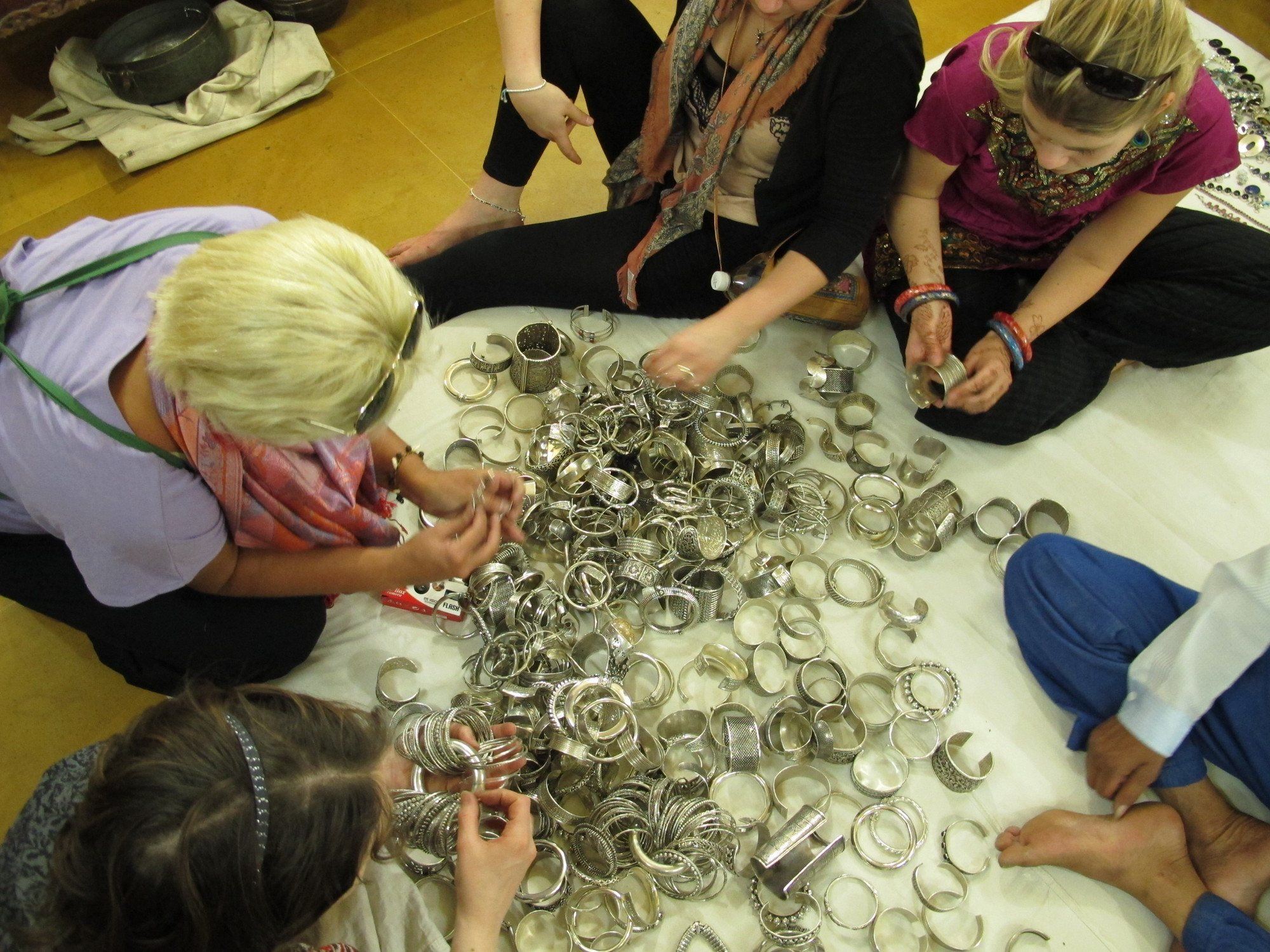
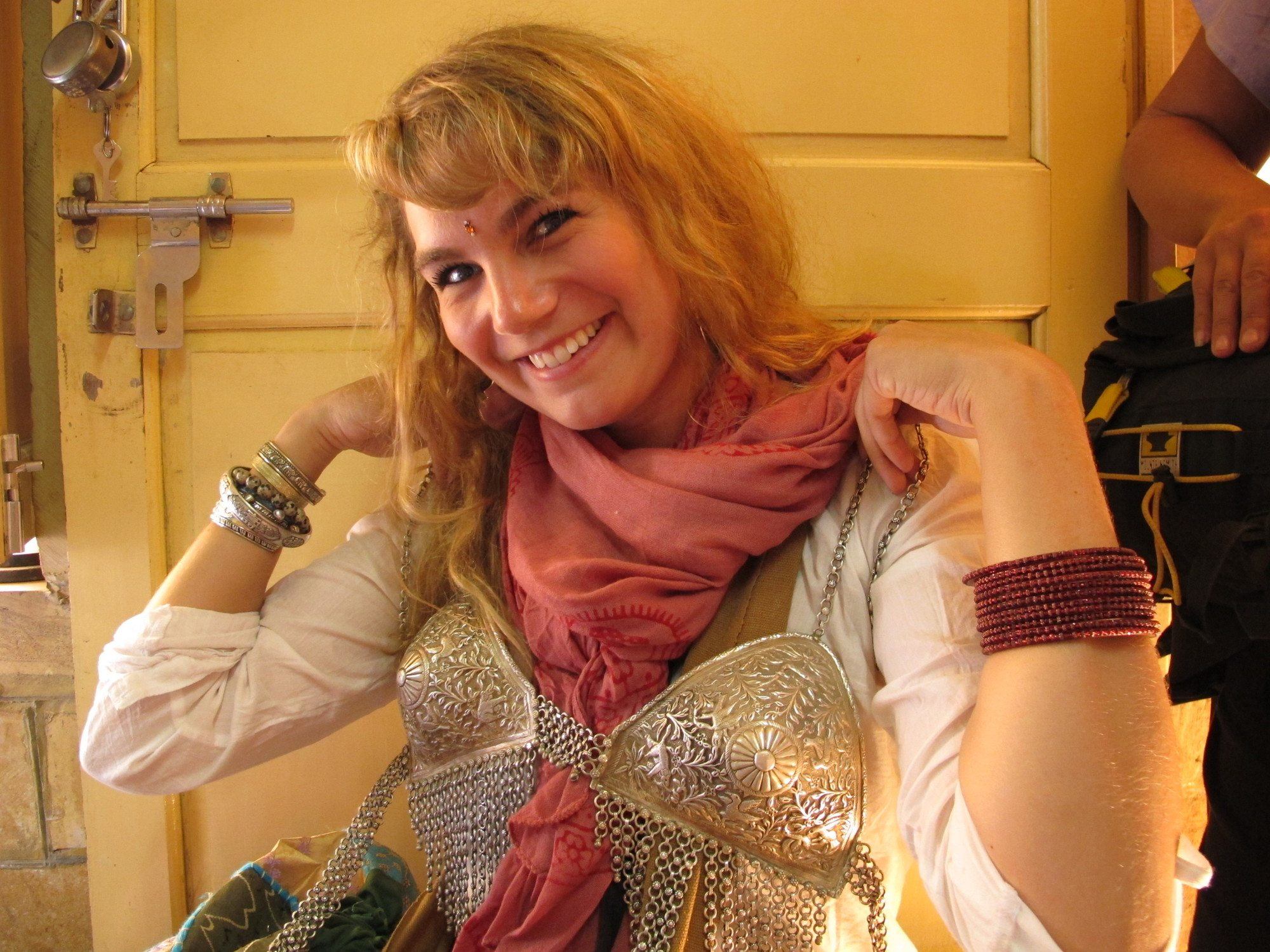
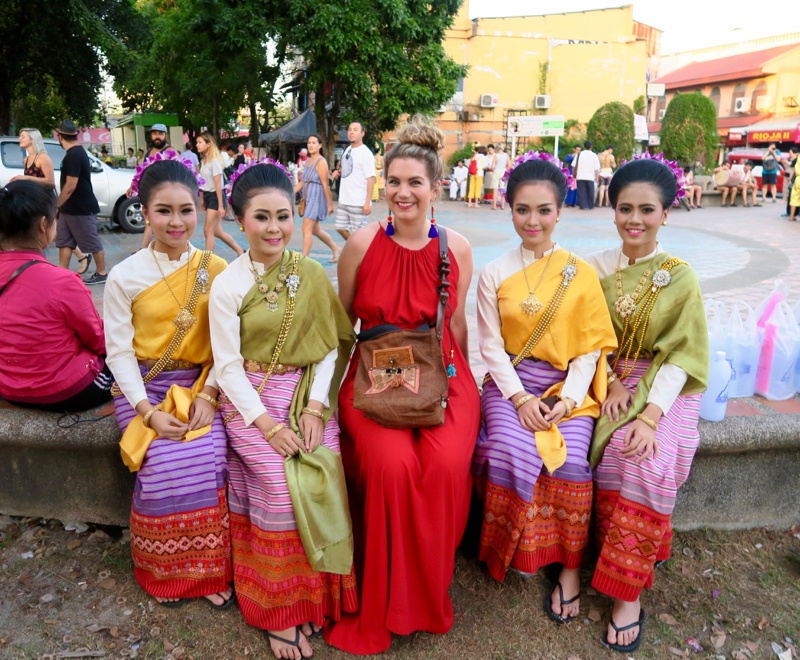
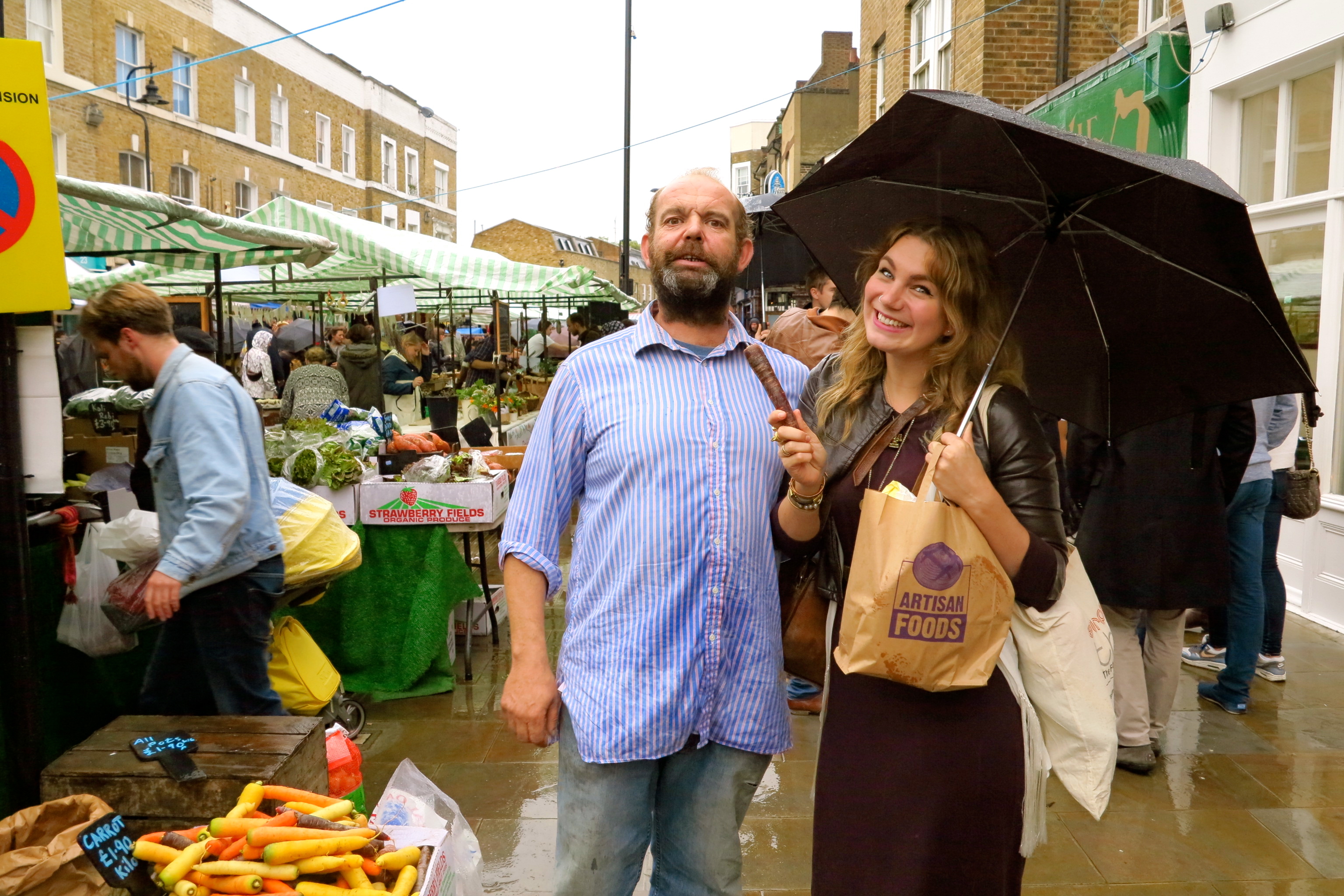
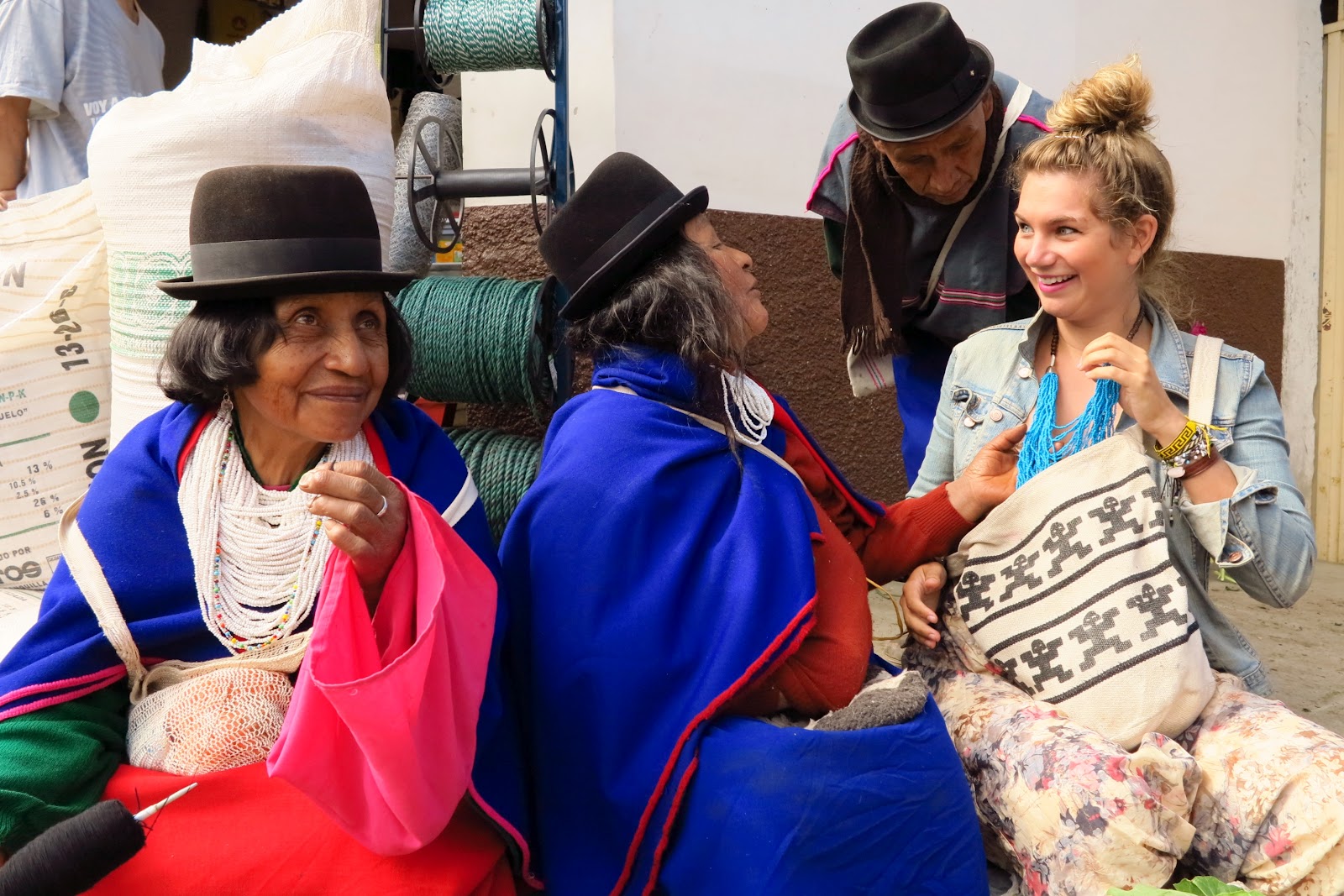
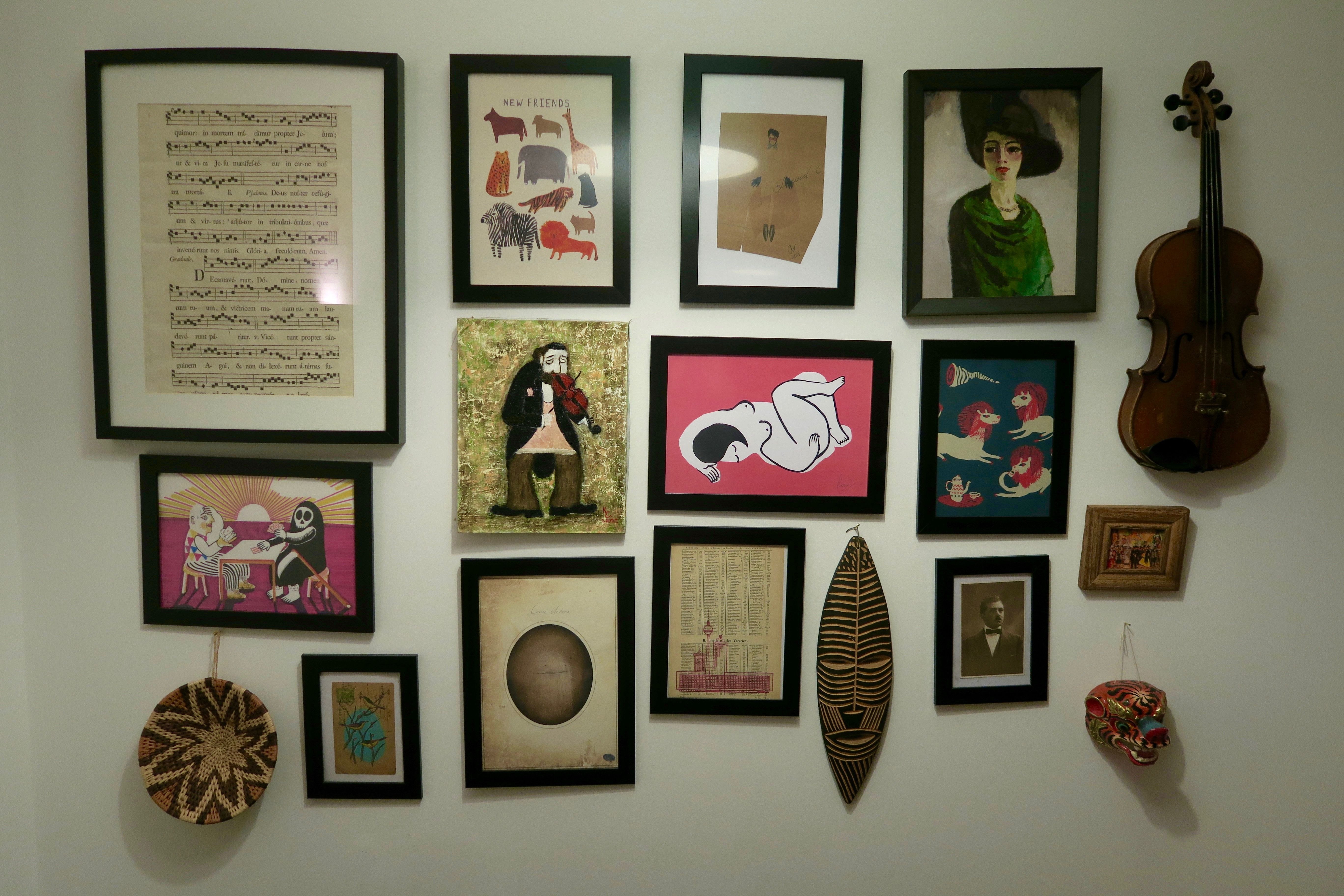
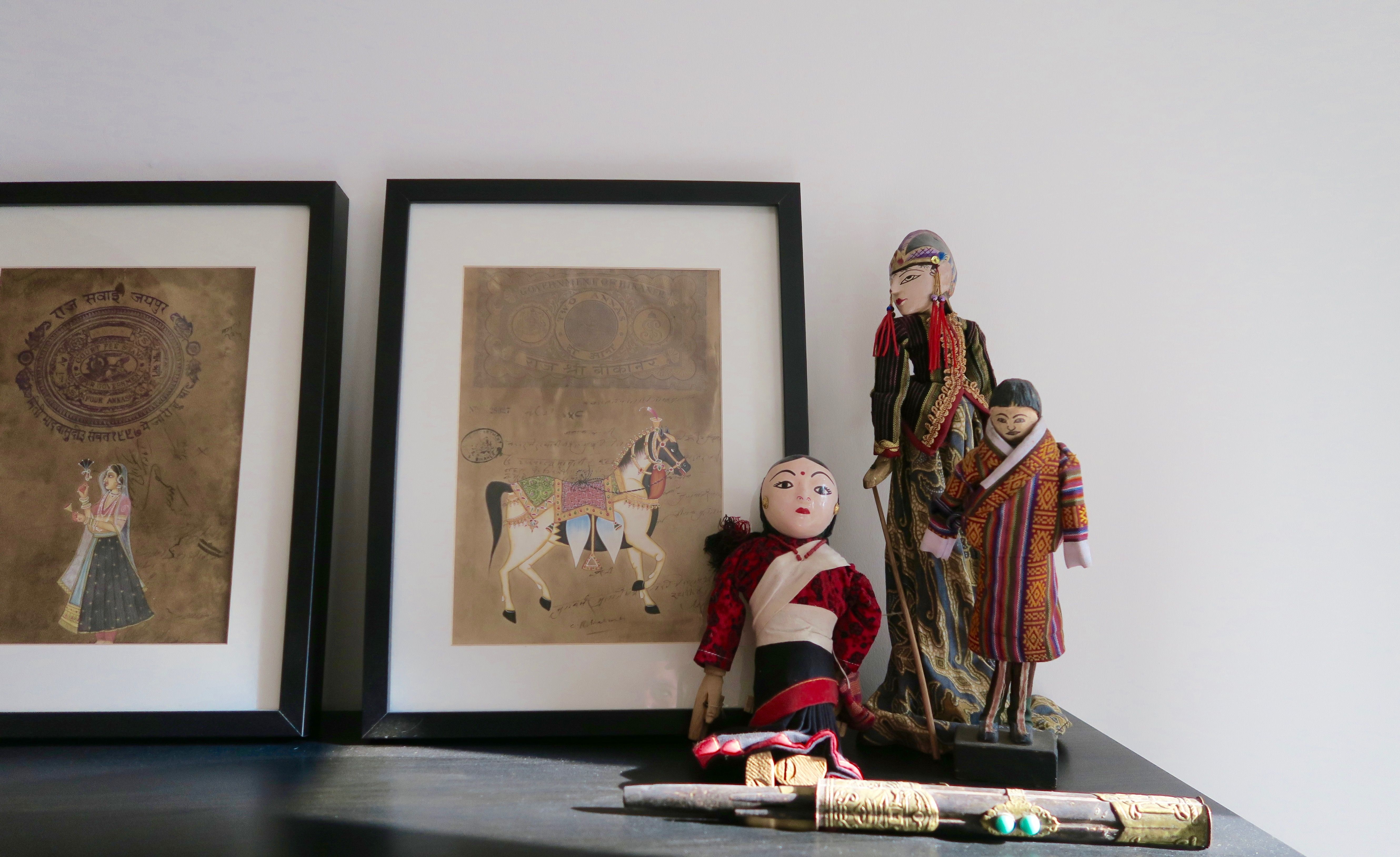
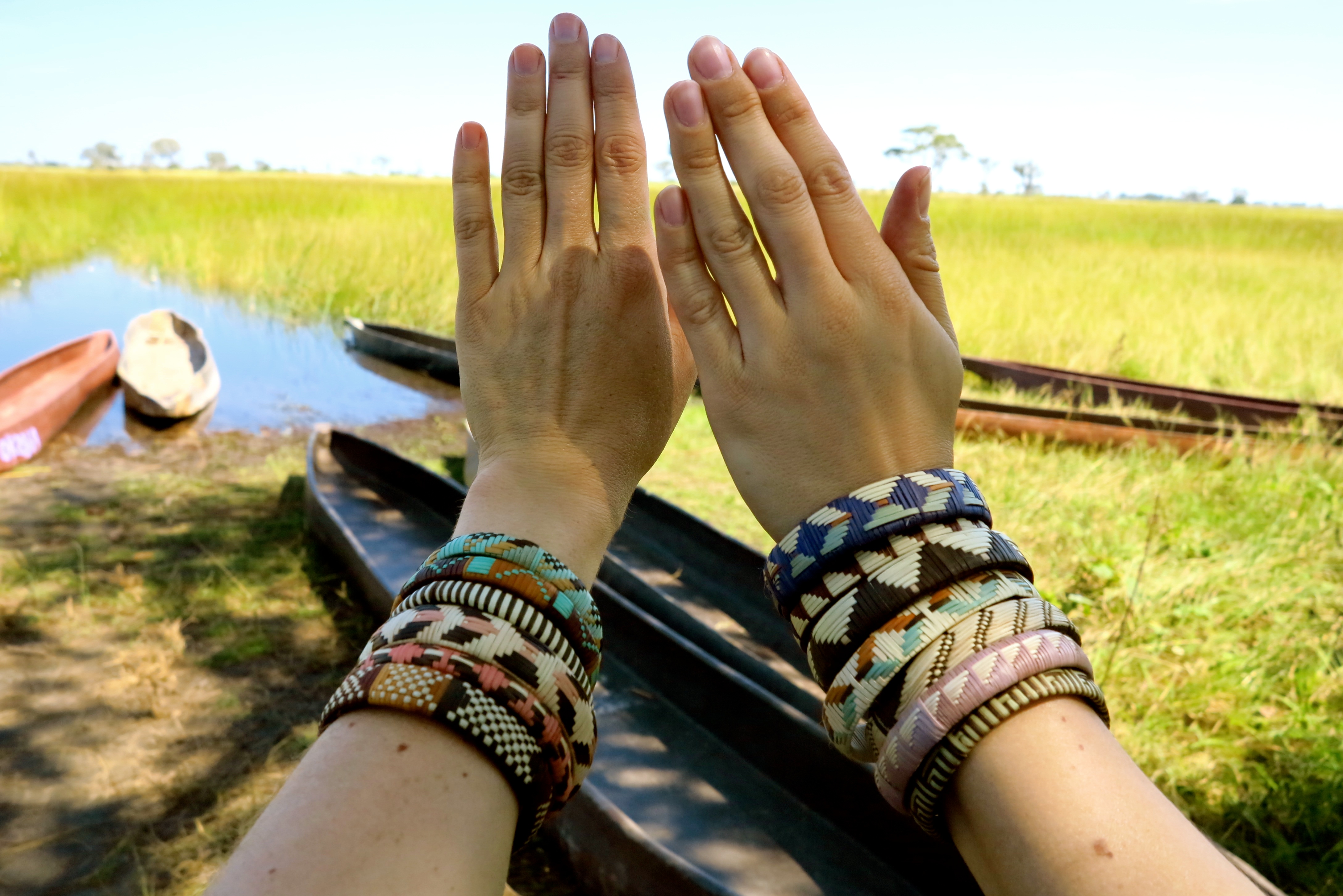
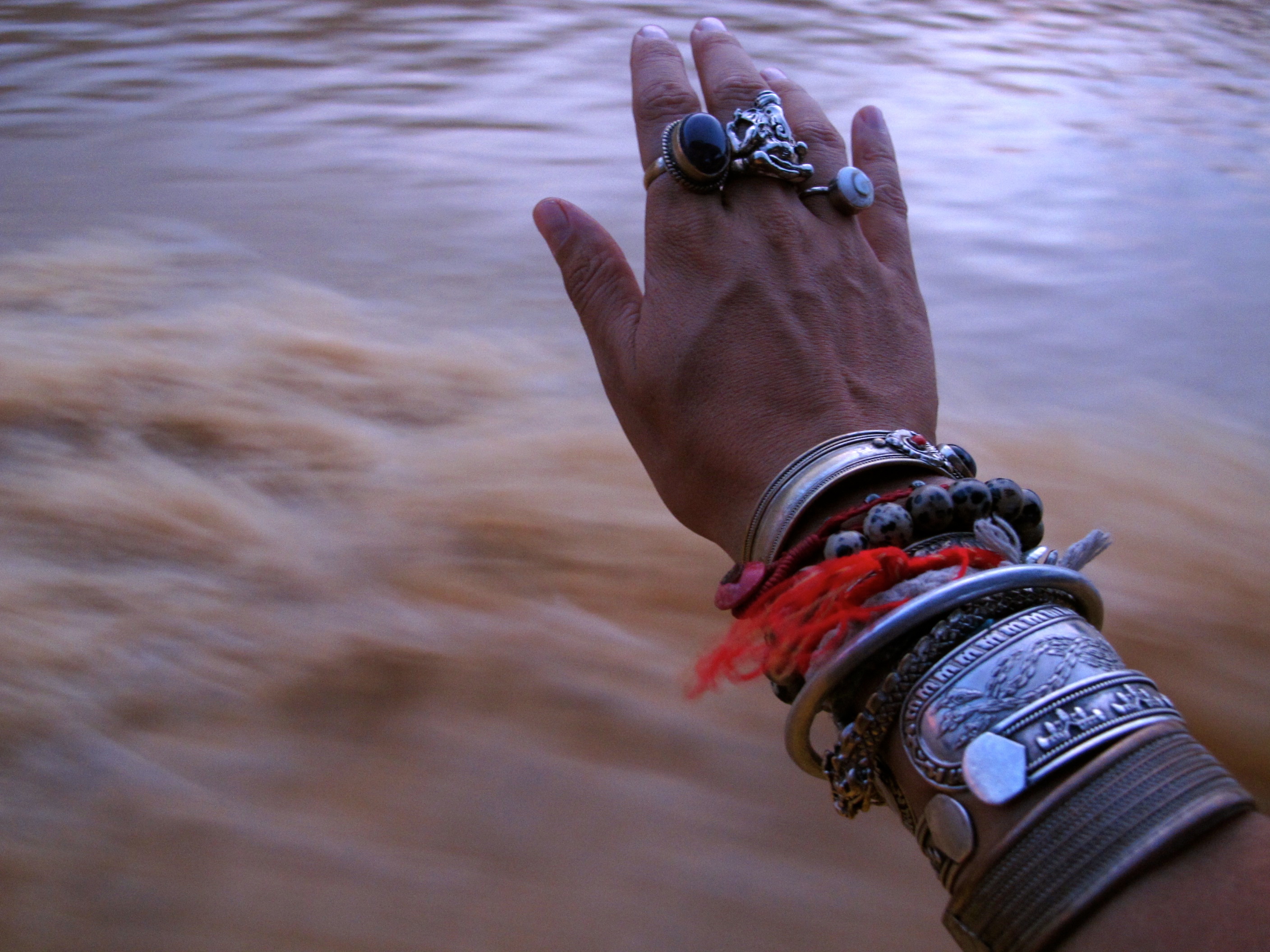
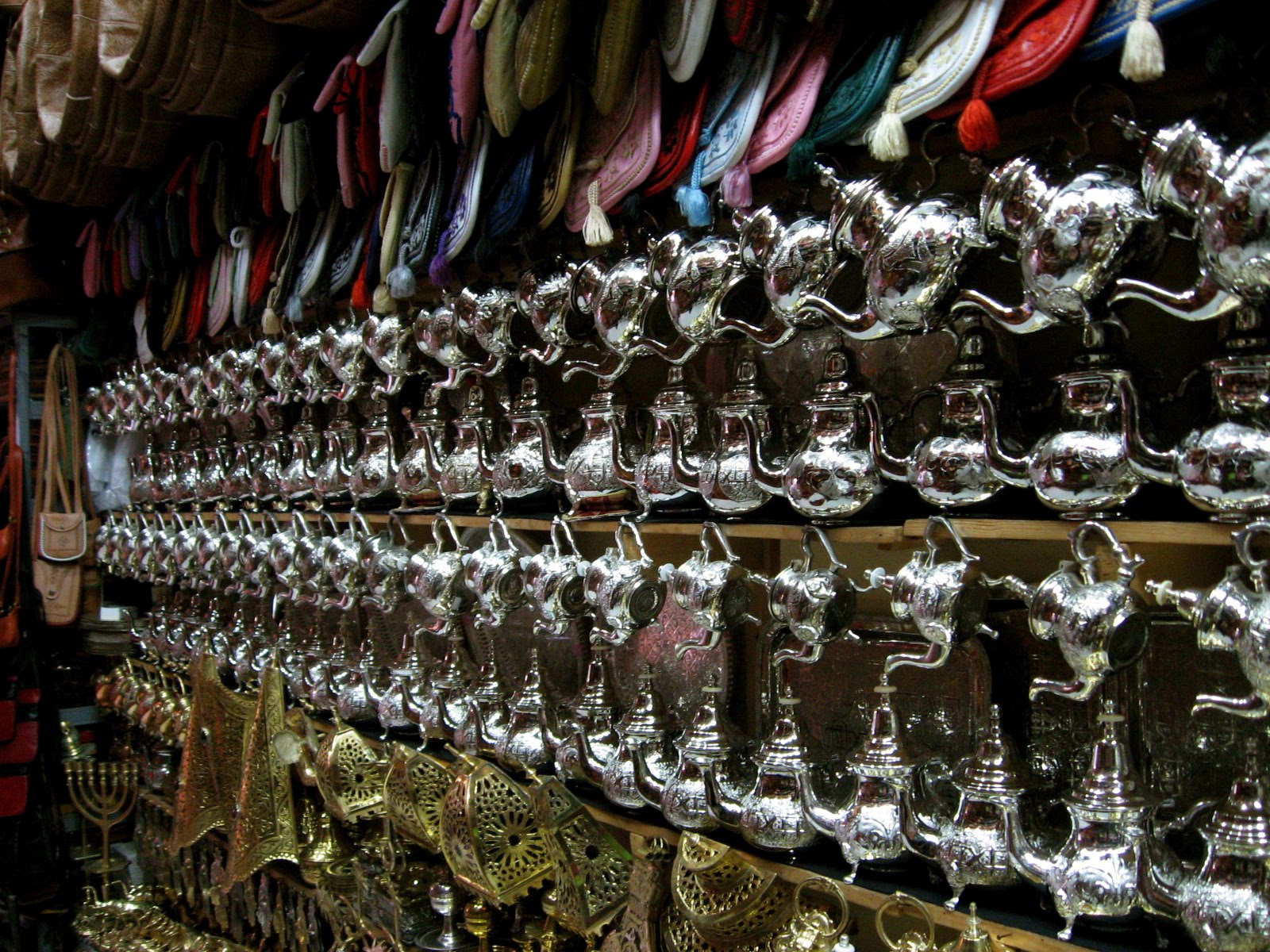
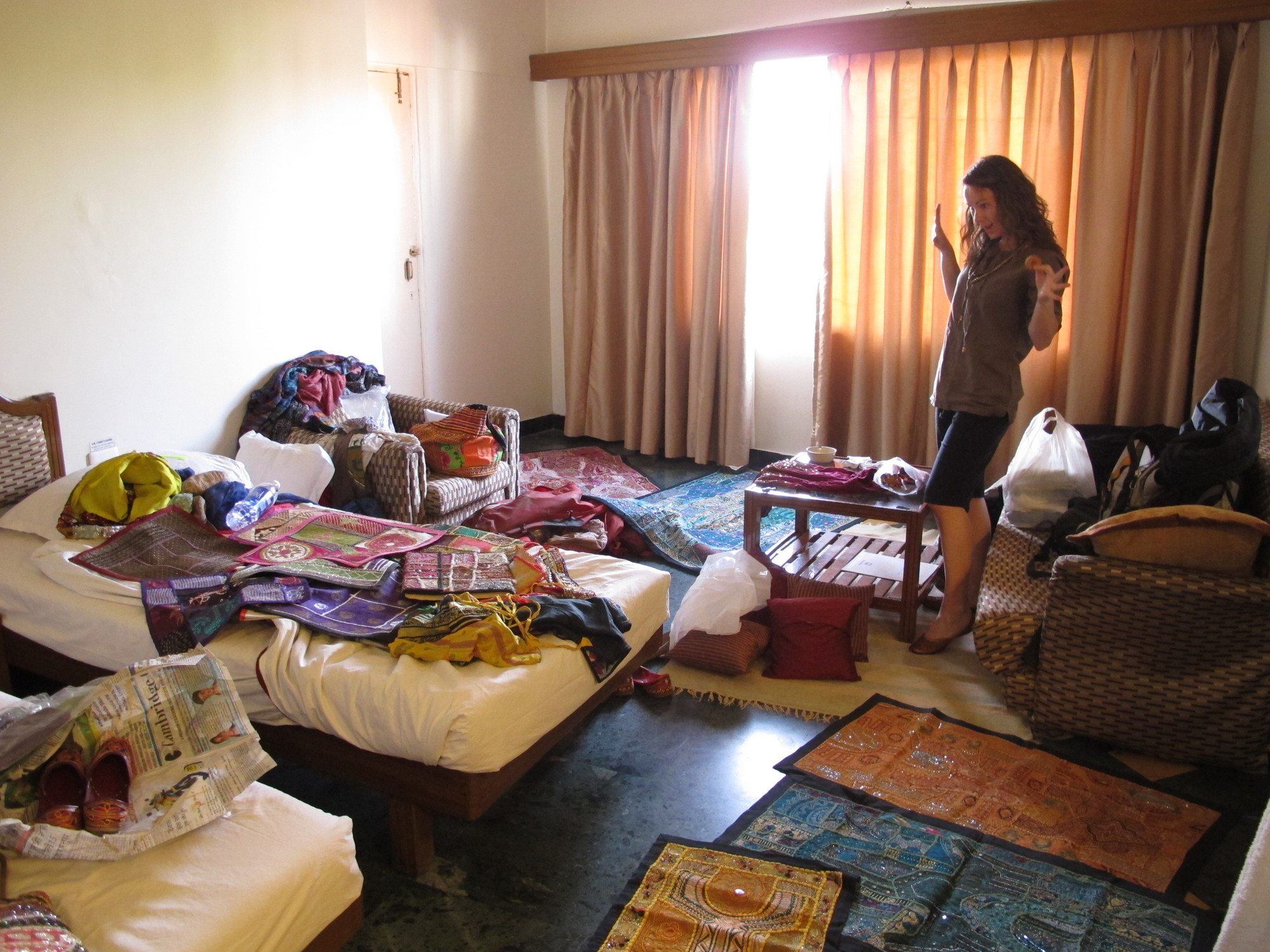
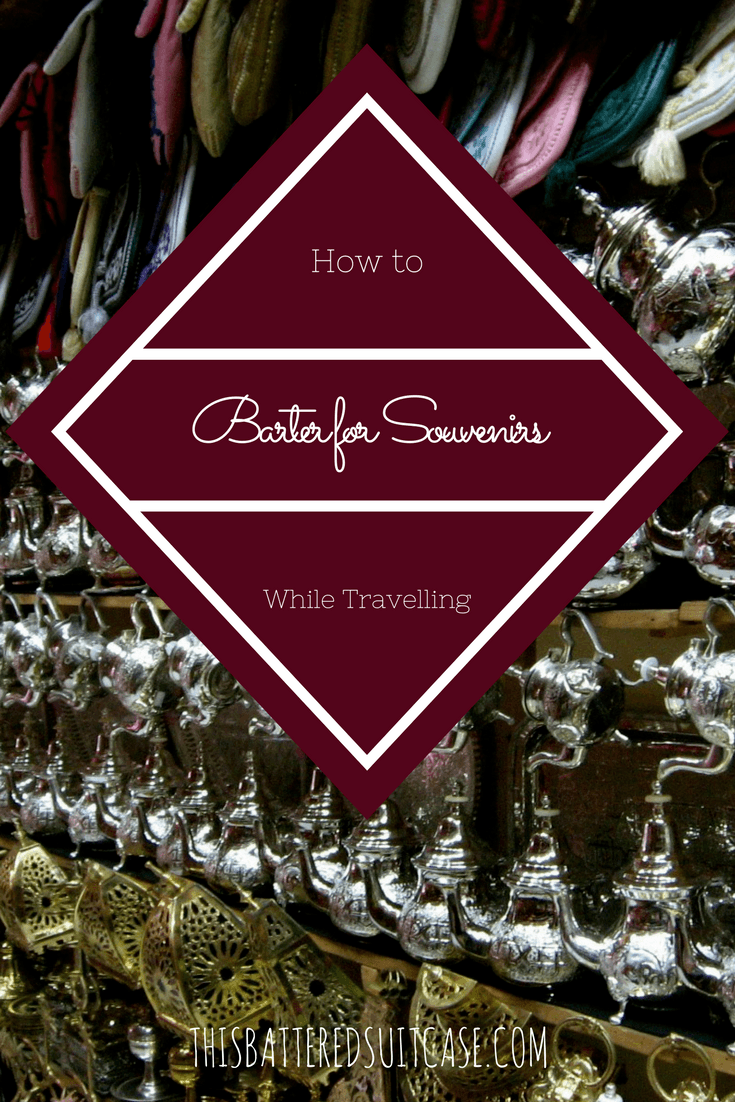
19 comments
Totally agree with you that we shouldn’t be stingy down to nickels and dimes, but that we should try for a price that we feel happy paying.
I used to absolutely hate to have to barter to get what I thought was a “fair” price. Now, I just do it because I know I have to and it is expected in many places.
I don’t buy a whole lot of souvenirs, but what I recently ended up bargaining for was the price of tuk tuk rides. On my last day in Sri Lanka, by chance I had 2 rides with the same driver, and the second time he asked me if I had a religion. He didn’t want to give me the 50 rupees change, and in the end I let him have it.
Yes, you can definitely use bartering techniques for tuk tuks and taxis, too! I’ve done it many times. Thanks for your comment, Chewy! 🙂
Thorough and well-written as usual, Brenna– or should I say “Linda Canada”. ;-0
Aw, thanks Oneika!! 😀 xx
I love to barter ,but I like to have fun doing it ,Think if you have a laugh and a chat it makes for a bit of fun,and I do love to chat to people and learn about their life ,well that is why I like travelling to different places..
Ps..Love your blog !?
Yes, absolutely! That makes all the difference. Thank you, Marg! 🙂
I’m so bad at this. I don’t want to get ripped off, but I also don’t want them to sell their stuff for nothing. I almost always skip it and be sad I didn’t get the spices or the colourful scarves.
Aw, it really only takes a few times to feel comfortable with it! I hope you’ll buy some souvenirs next time 😀
That last shot of your hotel room cracks. Me. Up. I tend to be pretty minimal (not over-the-top, but having a lot of “stuff” for decoration weirdly stresses me out), so most souvenirs I buy are edible or drinkable. That said, I would love to go on a trip — somewhere I wouldn’t be brave enough to venture to myself — with you and your mum. I bet you have the best time, and I really love shopping with people who know what they’re doing (since I never do)!
Ha ha – you are always welcome! 😉 We certainly do have a lot of fun and both of us are obsessed with souvenirs, so it usually makes for an interesting shopping adventure, to say the least. Thanks for your comment, Katie!
These photos are a feast for the eyes on a grey Toronto day, Brenna! As usual, some really wise words for the excited shopper. And I’m so glad I didn’t barter you for some cool silver, as the shopkeeper in Essouria tried to convince me: “Please, Mama. Anything you like for your daughter!”
Ha ha! I think you were pretty tempted… I know what you’re like set loose in a shop full of Tuareg jewellery… xo
I bartered over a price that was the difference of less than a dollar (only once!). After I was able to put the experience in context, I was ashamed by it. However, I feel that your point regarding a good price being the price you are willing to pay is very important as well. I was in Hoi An and the vendor ripped a money note out of my hand with a snarky comment. I had been there for a bit and I knew the going rate for the item I was buying. All this to say that bartering is an art and there should be respect on both sides of the exchange! Great post. Myself, I’m always on the lookout for local, homemade items. I get lost in the sea of mass produced goods!
I’m glad you liked the post, Marisa! That’s pretty awful about the vendor in Hoi An… I agree that there has to be respect on both sides. Thanks for the comment! 🙂
Thank you so much for this Brenna! I’m absolutely horrible at haggling and usually will just avoid it all together. My next trip is in a few weeks and I’m excited to use some of your tips/suggestions!
That’s awesome – have fun! Glad the article could help. 🙂
Thanks for the tips sister! I am so excited to hit up some local markets on my trip! I think that souvenir shopping is still one of my favourite parts about travelling 🙂
Yes!! You are going to buy some amazing stuff… 😀
I loved this article!! I also love buying souvenirs, but always try to buy things I know are useful. I never even considered shipping stuff home! This opens up a whole new door…and probably means I’ll need to pad my budget more 😛